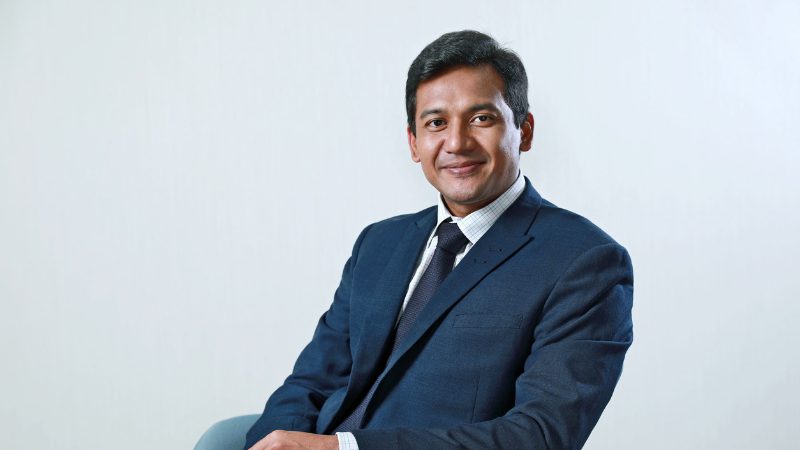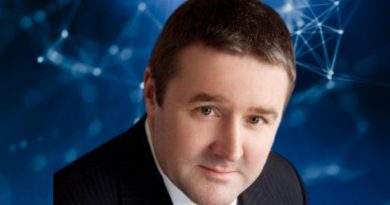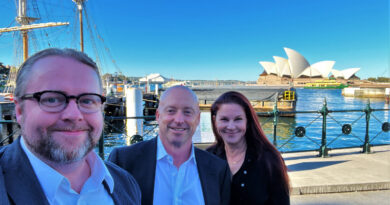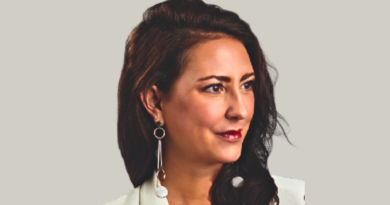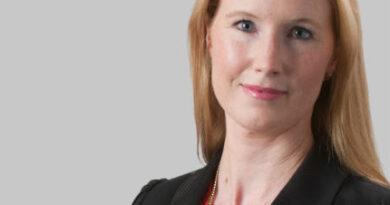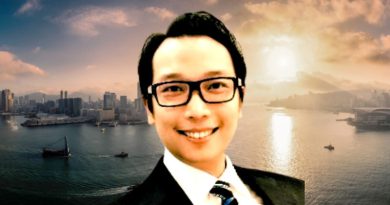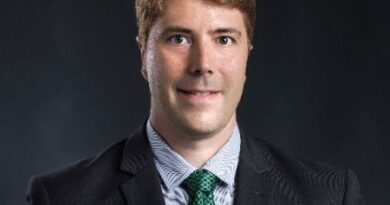Quantedge’s Suhaimi Zainul-Abidin: “The odds were stacked against us”
Suhaimi Zainul-Abidin is the CEO of Singapore-headquartered hedge fund firm Quantedge. Hedge Funds Club’s Stefan Nilsson had a chat with Suhaimi to find out about his career, Quantedge’s growth and its investment strategy. They also talked about Suhaimi’s dedication to education and charitable causes and much more.
After university, Suhaimi Zainul-Abidin became a lawyer before joining Quantedge in 2013. Quantedge, founded in 2006, runs a systematic quantitative investment strategy that is diversified across multiple asset classes such as equities, bonds, commodities, currencies and insurance-linked securities.
You started your career by working as a lawyer for nearly a decade. What made you leave your job as a partner at a law firm to join a hedge fund?
I spent a very fulfilling decade in the legal profession and I was an equity partner when I left. In all honestly, it wasn’t an easy decision because I had built a viable and promising legal practice, I had obviously made lots of sacrifices to get to that stage of my career, and I could envision a long-term fruitful career in law. It wasn’t an easy decision to leave the law. On the other hand, leaving to join Quantedge wasn’t exactly a leap into the dark. I was already an investor in Quantedge and I knew many of the senior management personnel at Quantedge. They were managing half a billion dollars then and had plans to grow the firm manyfold. I thought it was a very exciting opportunity and challenge – an opportunity not only to contribute to building something great but to have an active hand in growing my own investments. Even at that time, the vision of Quantedge was fairly clear. Of course, they had set very lofty investment goals, but, perhaps more importantly, there was also a strong desire to deploy resources towards doing good; towards creating a positive impact on our communities. That really resonated with me.
How has your background in law benefited you in your current role?
As Al Pacino said in the film “Devil’s Advocate”: “The law, my boy, puts you into everything. It’s the ultimate backstage pass…” I was a banking and finance lawyer, specializing in property, project and share financings. I also dabbled in sukuk financings, and on occasion, reviewed ISDA and fund documentation. While my work primarily centred around bank financing, I had a window into the world of investing and asset management, and this was certainly useful exposure. But more importantly, I learnt a lot about winning and retaining clients, closing deals and managing projects under pressure, leading people, and marshalling resources. These are skill sets and experiences you can tap on in a variety of settings, regardless of industry, and they remain useful in my job today. I started at Quantedge with a primarily a legal and compliance role, as Director and General Counsel of the firm, but this quickly expanded to overseeing operations and risk management aspects of the firm, before also taking responsibility for finance and investor relations. I had also, over time, acquired valuable board-level experience via positions on the boards of charities and governmental agencies, which focused on matters related to broad organisational strategy, financial controls, risk management and talent management. Every bit of exposure helps.
How did Quantedge manage to grow from a small local Singapore hedge fund start-up into a major international multi-billion-dollar asset manager?
We did it patiently, one small step at a time while staying true to our values and long-term goals. I think it is fair to say the odds were stacked against us, especially in the early years. We were among the early movers in the fund management industry in terms of launching a systematic quantitative investment strategy, targeting a relatively high level of risk. At that time, there was definitely more investor demand for non-correlated or, better yet, market neutral and low-volatility strategies. You could say there wasn’t an immediately obvious market for our product. But we believed that our investment strategy made sense. It certainly made sense to us. We wanted to compound capital meaningfully over the long term, and we wanted to do it in the best way possible, by applying a disciplined quantitative approach to analyzing the markets and constructing the most efficient investment portfolio possible. We wanted to achieve long term annualized returns of 20-30%. And we wanted to do it for a very long time. This is how we wanted to invest our own money, and this also guided our approach to the business. It didn’t take long for other investors to realise they had the same goals and trusted us to help get them there. In the beginning, it was just a two-man operation – a real boot-strapped start-up. But we have institutionalised the firm over time. We deal with the best and biggest counterparties and service providers and count among our clients several university endowments, insurance companies and listed corporations. I would say that we’ve grown big, not by aiming to be big, but by aiming to be good. We simply strive to achieve excellence in every aspect of managing our investment fund. And growth naturally followed.
Quantedge has some 70 employees across your offices in Singapore and New York. How can you as CEO manage it all?
We have a strong bench of leaders in the firm across verticals such as portfolio management and quantitative research, trading, operations and risk, and even technology. Everyone chips in. Our structure is fairly flat anyway, so significant contributions can be made by anyone within the firm. I try to focus on the big picture, identify developing risks and new trends, provide a little guidance to staff on their projects and initiatives, and remind people of our long-term goals. We trust everyone in the firm to do what’s best for the firm and the fund, because virtually everyone is invested, voluntarily, in the fund!
Quantedge has been around for more than a decade and a half and has grown both assets and headcount significantly. What are the major challenges for the firm right now?
There are always new challenges to grapple with. But there are also enduring challenges. We’re a vastly different firm today compared to ten years ago, by virtue of the increasing complexity of our operation, our growing visibility and reputation, and our bigger headcount. And we’re going to continue growing. You can’t run the company the same way as the business grows manyfold, so we’ve had to change policies and culture within the company. There are also bigger liquidity challenges associated with running a large fund. We have the benefit of being highly diversified – we have positions across over 250 different markets and strategies today – which means that our positions only occupy a very small percentage of most markets that we trade in, meaning that we can grow the fund manyfold without hitting our strategy capacity. Yet, we are cognizant of the fact that liquidity challenges will only continue to grow and so we need to devote more resources to solving this challenge.
You run a systematic quant strategy. Has the investment strategy or how it is implemented been changed or tweaked at all during all these years?
Our investment goal and investment philosophy have not changed since day one. But we’ve also, since day one, been on a quest to continually improve our strategy and portfolio, and I think they are more robust than ever. Our investment universe now includes over 250 different markets across the major asset classes of equities, fixed income, commodities, currencies and reinsurance. There is real diversification in the sense that we’re investing in easily more than 95% of these markets on most days. We also make other tweaks from time to time to improve various aspects of the models. One example is how we measure and estimate risk in the markets and for our portfolio. This is critical given that our strategy involves targeting a constant level of portfolio risk. Over time, our risk framework and models have become more nuanced and sophisticated – far more so than the approach of typical constant volatility funds.
You are someone who takes an interest in environmental issues and you are a director of the National Environment Agency. In the investment world, there’s a lot of talk around ESG. Is this something that has been incorporated or taken into account at Quantedge as a firm and in the investment strategy at all?
You certainly have to think about it, because it is the single most important – in fact, existential – issue of our generation. Investors and asset owners have a big role to play when it comes to sustainability, in terms of determining what kind of world we will leave behind for the next generation. Of course, the investment management industry can’t do it alone. For the world to succeed in this critical transition, we need wide buy-in from governments and consumers. The extent to which a fund or a manager can incorporate ESG into its investment strategy depends on the strategy itself, on the asset classes traded, and the mandate of the fund. At Quantedge, we’re actively deploying capital across a wide variety of asset classes and markets, but ESG does not apply equally to everything. To date, we have integrated ESG into our equity styles strategy, where we basically go long a basket of stocks and hedge out the market beta. This means that we won’t hold stocks of companies that don’t score well in ESG terms. It’s a fairly simple approach to integrating ESG into our investment portfolio, and we think it will be a positive tweak to the strategy in terms of future returns in the long term.
Apart from environmental issues, you have a lot of involvement in charitable causes, not least serving on many non-profit boards. What drives your involvement and how do you choose what good causes to get involved with?
I try not to restrict my contributions to particular causes. While each appointment in a charitable organisation is a serious commitment in terms of time and effort, it is worth my while because these roles give me invaluable insight into other sectors, broader issues affecting Singaporeans and the world, as well as active involvement in areas of policy formulation, risk management, corporate governance and financial controls. I only take on appointments if I think I can spare the time and if I think I can contribute. Singapore has given me a lot, and I want to give back. People can give back in different ways, and this is just one small way.
Let’s talk about education. You serve on the Board of Governors of Raffles Institution, one of Singapore’s best-known schools, where you were a student before you studied law in England. When it comes to education, what are the key things that young people who want to join a hedge fund should focus on in order to be best prepared for entering our industry?
There are, of course, a number of different but nonetheless important roles that need to be filled in a hedge fund. The key technical skills required to become a quantitative analyst would be strong numerical, quantitative and coding skills. But it is also important to show certain qualitative aspects such as an innate interest in financial markets, good problem-solving skills and the ability to communicate well. These qualitative aspects would be important for other roles within hedge funds, including within operations, risk management, and even legal and compliance roles. Every firm is different in terms of culture, so cultural fit is critical. For Quantedge specifically, we are looking for open-minded and curious individuals who are able to work well in teams.
I know that Quantedge offers talented people internships as a way of bringing in new and smart people to the firm. What else do you do in order to attract and retain the right calibre of employees?
We’ve been able to attract really good CVs and, consequently, made some very good hires. We prefer to hire staff fresh out of school and we are prepared to devote serious resources to training our young staff. Many different things matter to employees today, but I think the most important remains the corporate purpose. We have a clear purpose, which we try to communicate to employees repeatedly. It defines what we do, and how we do things. I think this resonates well with our staff. We want our staff to know that each of them can have a long, fulfilling and meaningful career at Quantedge, and contribute to building something great. I think we’re largely doing something right when it comes to culture – many new joiners from previous years have told me that they chose Quantedge over other offers from big tech companies or global hedge funds because they like the closeness, the social interaction, and the bonding amongst colleagues at Quantedge.
How do you invest in your employees’ career development?
A significant majority of our senior management personnel have grown with the firm. They joined us early in their careers, deepened their technical expertise and went on to assume greater leadership positions. We have an open culture within the firm, in the sense that everyone is encouraged to hatch new ideas, start projects, undertake study programs and courses, and learn new skills, all with guidance from senior management. This gives employees room and freedom to grow, cultivate their own interests, and find their own niches. And we do all this within an environment that hopes to facilitate longevity. We’re in it for the very long term, and we want our employees to run this ultra-marathon with us, at a conversational pace. Giving employees the freedom to learn and grow at their own pace is, I believe, critical to sustaining passion, interest and energy, and key to career development.
After many years in the same role, what drives you to continue? What motivates you to get out of bed in the morning?
I have a clear vision of our purpose and long-term goal. That always makes things easier. Everything is centred around what we want to achieve in the long term. Aside from that, I love meeting and learning from people. I see what we do at Quantedge adding value to and in some cases positively changing the lives of, our customers and our employees. That’s a great reason to get out of bed each morning.

